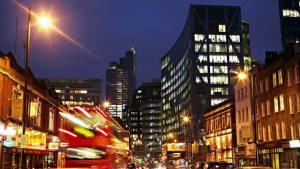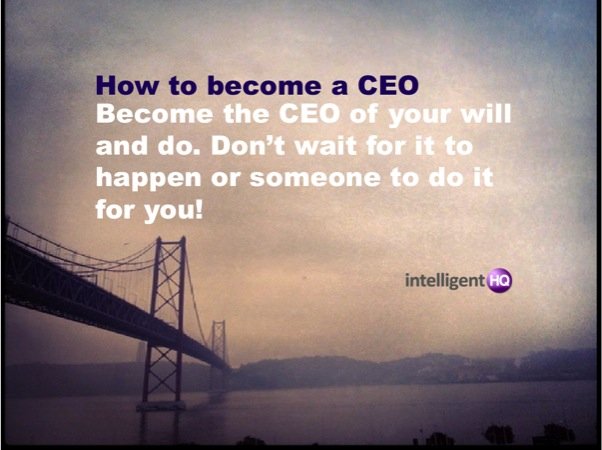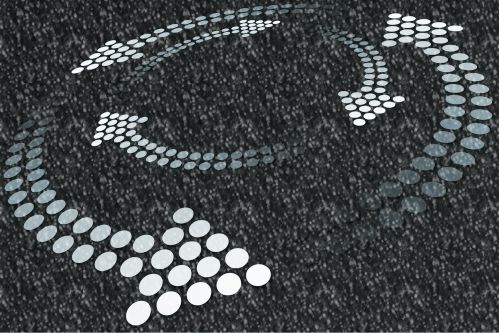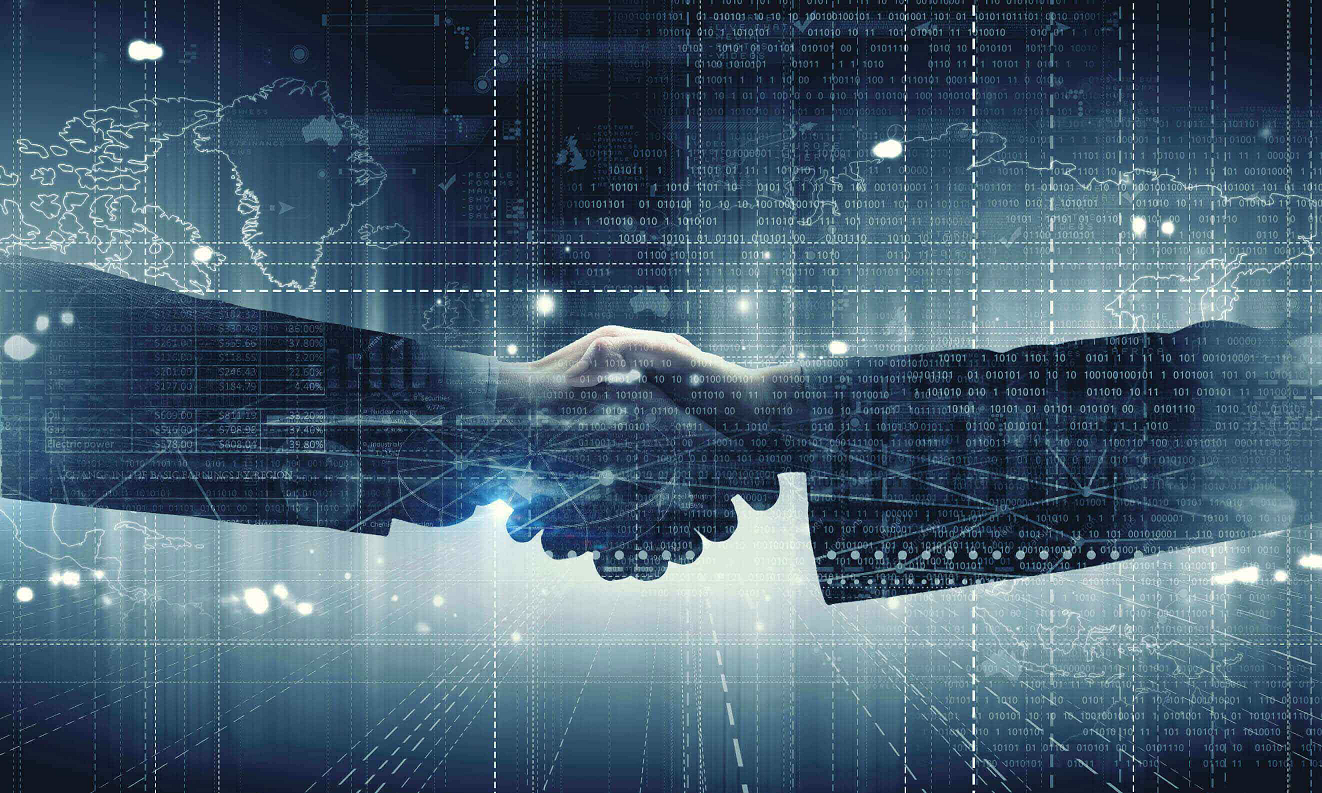
Blockchain, the distributed ledger technology that has hit the headlines with full force over the past 6 months, is said to be a disruptive technology that will revolutionise the world, from the way we govern society, identify people and properties, construct databases and how we make and grow a businesses. Will that revolution be for the benefit of all ? Will it improve the ethical values which inspire our action when doing business? And if so, what values are those?
We are in the early stages of the technology, so for now, what is possible to do is to forecast some possible future scenarios. What are blockchain’s inherent characteristics that can benefit society, and promote more ethical ways to do business ?
4 Major Characteristics That Make Blockchain Quite Unique
Blockchain became popular due to Bitcoin, however, this technology is not limited to the financial realm. Basically, the blockchain is based on four major characteristics:
- Storage: storage of information is done in blocks and these blocks of information are ‘hashed’ together to form a chain, hence the word ‘block chain’.
- Distribution: the strength of the chain is its duplication over a distributed network. Therefore, a criminal or rough governmental group must change all copies of a ‘block chain’ simultaneously to not be detected.
- Consensus: the variation of the technology and data is high, therefore all participants in the chain must agree upon a format to make interoperability possible.
- Execution: a blockchain can also execute a program if a certain condition is met. Typically, this is referred to as a smart contact, but recently thinkers in this field have referred to this functionality as ‘decentralized application’ or ‘DAPPS’. Their argument is that the word ‘contract’ limits our conceptualization of this phenomenon.
The promise that Blockchain holds, therefore, due to this unique set of characteristics is the one of changing the economic system to a more ethical, post capitalist one, which balances profitability with positive social impact.
According to Alexander Chen blockchain could help in the following way:
- Indirect reporting: In every part of the supply chain process the externalities (for example pollution) can be registered (specifically or approximated), this information stays internal, but once the end product is on the shop shelves, the costumer is able to see the ‘report card grade’ of pollution that is associated with this specific product. This grade can be generated from the information in the blockchain, so if there is a clear consensus how the calculation should be done. This grading could be adopted as benchmarking between competing supply chains.
- Direct enforcement: the blockchain could directly exclude certain transactions on country level (conflict zones), type of transaction(corruption) etc. Thereby it would be excluding by design the possibility of problematic components or financial transactions to enter the supply chain or the wider system.
These two forms of implementation could lead to a new paradigm inside the current mainstream way of doing business. Interestingly, administrative cost could in theory be handled by the blockchain itself, a DAPP or even more innovative but also less mature systems called Decentralized Autonomous Organization (DAO) which could run an entire company on a block chain, making it a humanless organization. A decentralized autonomous organization (DAO), sometimes labeled a decentralized autonomous corporation (DAC), is an organization that functions through rules encoded as computer programs called smart contracts. A DAO’s financial transaction record and program rules are maintained on a blockchain. This model is so innovative, that the precise legal status of this type of business organization is unclear. With the DAO we could have human-less businesses not prone to human failures and flaws. But do we want this? The DAO in itself raises questions concerning what are the limits of what we invent and where we want to go, if we want a more fair society to all.
Another example Chen mentions is the hypothetical scenario of governments agreeing that companies need to make their Information Systems compatible with a specific blockchain and slowly expand the information required to be present in the blockchain, which will make companies start to act in a different way.
A final practical example where blockhain is helping supporting the development of ethical businesses is Everledger, a company that tracks and authenticates diamonds using blockchain technology, to help enforce the ethical trade of diamonds
Blockchain is not the holy grail to all problems. Its contribution for a more ethical way of doing business, will certainly come out of its concerted action with other innovations such as 3D printing, IoT, Machine Learning, and new models of economics, being implemented and supported by Governments and the civil society, such as the circular economy and the sharing economy. There will be also the need to legislate, when facing all the technological sci fi extravaganza ahead of us, and to discuss what boundaries we wish to cross… or not.
Is the Blockchain Community Immature ?
On a final note, it is important to realise that it is not blockchain technology in itself, that will lead us to a better ethics in business and society in general, but an evolution in collective (and individual!) consciousness. Unfortunately, we don’t have many examples of mature projects yet. On the contrary, we have seen, last year, various scandals concerning ICOs raising money for self proclaimed “good ethical blockchain projects” that never came to fruition. The social impact of the various crypto currency projects using blockchain is yet to be seen. Vitalik Buterin, the inventor of Ethereum mentioned this concern, pointing out in a series of tweets how he is becoming increasingly frustrated with the immaturity and pettiness he sees “sloshing around” the cryptocurrency ecosystem in general. “How many unbanked people has the community helped?” He asks…
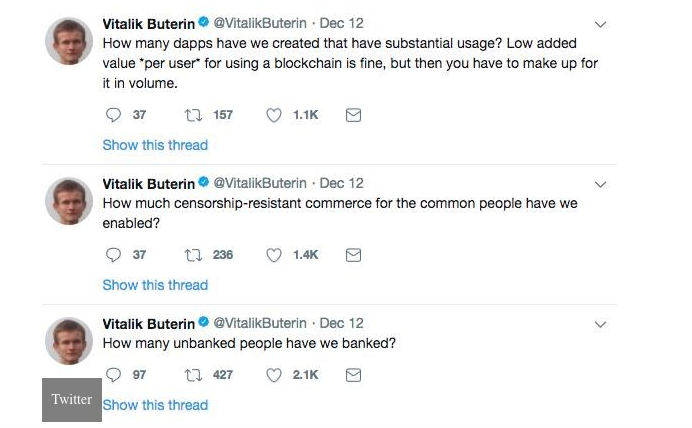
These are early days, and only the future will see if the potential of blockchain for implementing a more ethical society.

Maria Fonseca is the Editor and Infographic Artist for IntelligentHQ. She is also a thought leader writing about social innovation, sharing economy, social business, and the commons. Aside her work for IntelligentHQ, Maria Fonseca is a visual artist and filmmaker that has exhibited widely in international events such as Manifesta 5, Sao Paulo Biennial, Photo Espana, Moderna Museet in Stockholm, Joshibi University and many others. She concluded her PhD on essayistic filmmaking , taken at University of Westminster in London and is preparing her post doc that will explore the links between creativity and the sharing economy.























